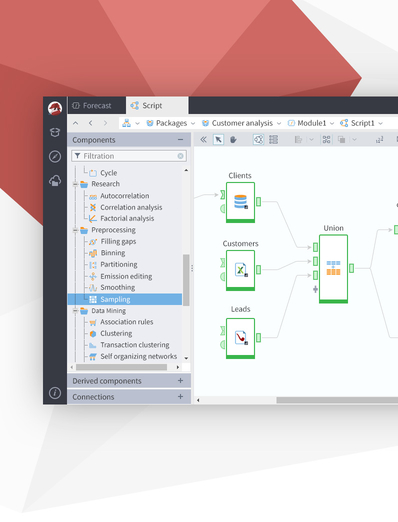BaseGroup Labs develops software products and implements solutions for data analysis. They specialize in developing data mining systems for data collection, integration, and cleaning, as well as visualization and modelling. The leading product of BaseGroup Labs is Deductor, an analytics platform.
In 2014 we started working on a new website for the company. Our job was to reexamine their approach to the online presence. In particular, we needed to organize information form the old website and highlight the main products and focus areas to be presented on the internet.
We needed to properly understand our customer's area of expertise and the specifics of their business. In order to do that, we conducted dozens of interviews with BaseGroup Labs employees, studied their competition, as well as websites of companies with similar products and services.
We defined problems and searched for solutions: the target audience, its segmentation, the interests and behaviors of each segment, what is more and what is less important.
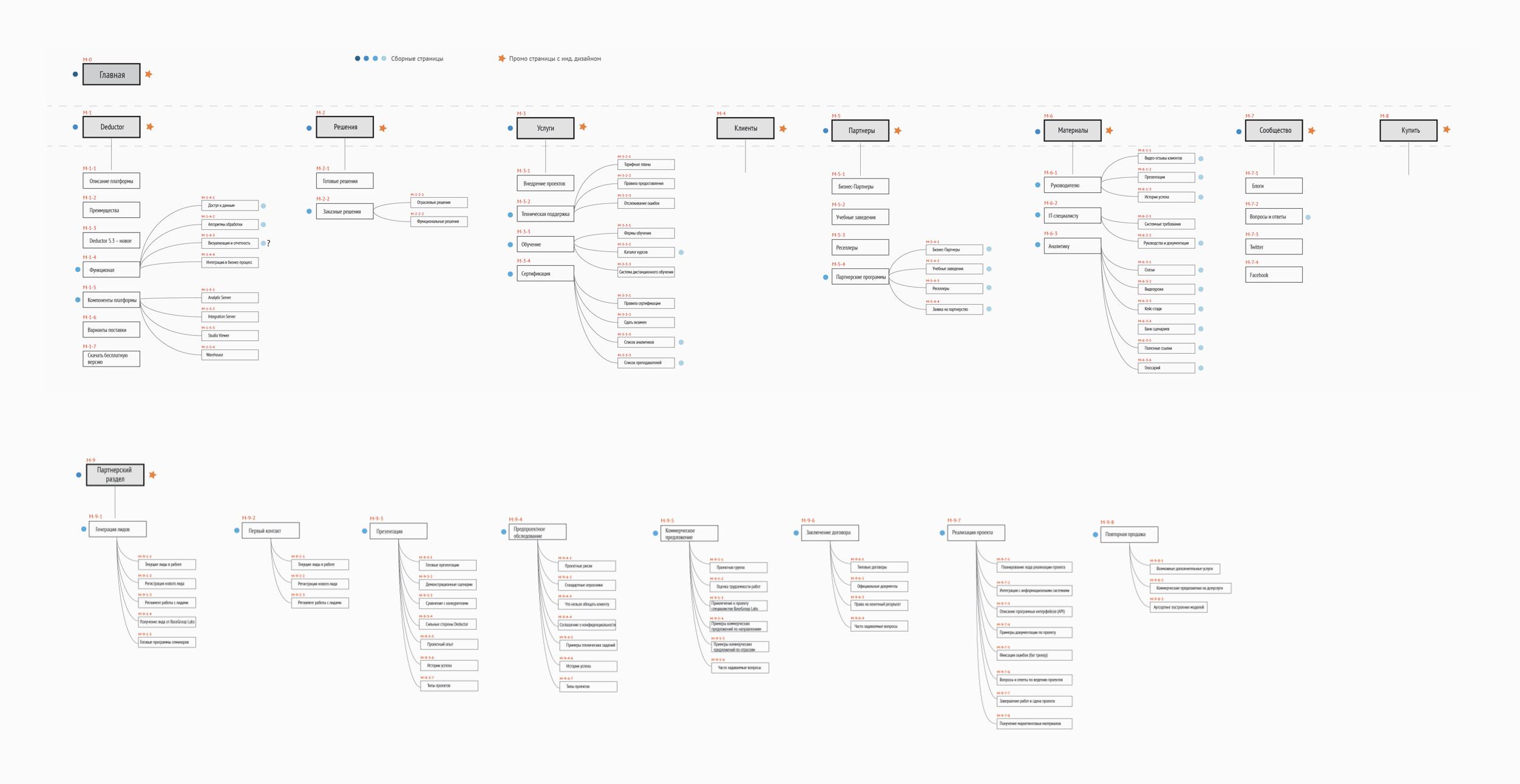
A diagram for a part of the website’s structure
BaseGroup Labs website is a large corporate site with more than 40 different sections and services:
- Blogs
- News
- Announcements
- Events
- Partners
- Clients
- Educational organizations
- Training courses
- Workshops
- Certificates
- Exams
- Tutors
- Projects
- Presentations
- Analytical tools collection
- Case studies
- Knowledge base
- Reviews
- Documentation
- Articles
- Demo videos
- Success stories
- Forums
- Glossary
- Processing algorithms
- Data access
- Analysis tasks
- Books
- Slide shows
- Agreements
- Leads
- and much more
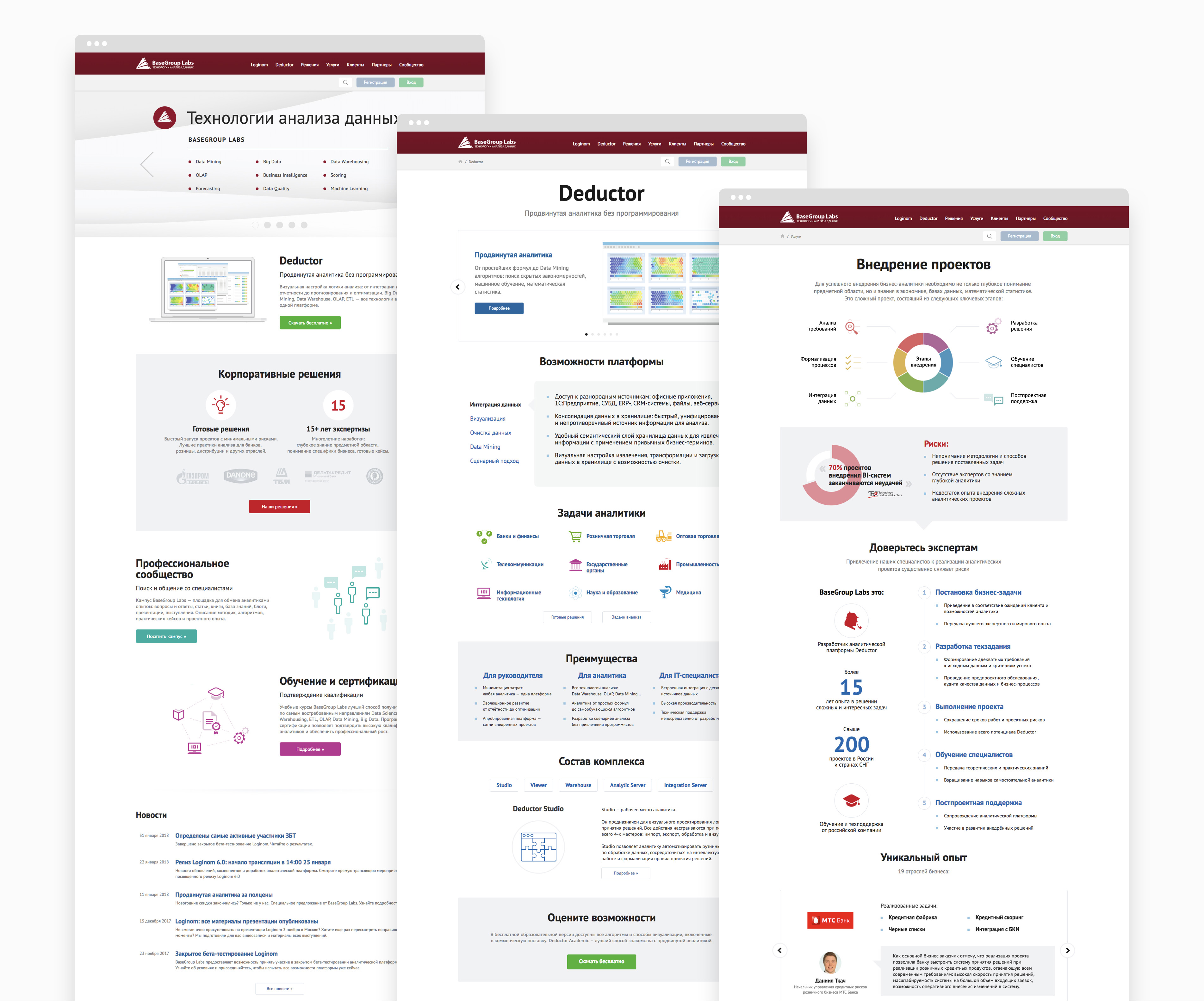
Deductor is the flagship product of BaseGroup Labs. It embodies many years of the company's experience and combines the best architectural technologies with up-to-date mathematical tools. Deductor is a platform that acts as a basis for creating complete analytics solutions. It was created for experts in different business fields to process any kind of structured tabular information.
To present main products and services, we designed more than 15 landing pages.
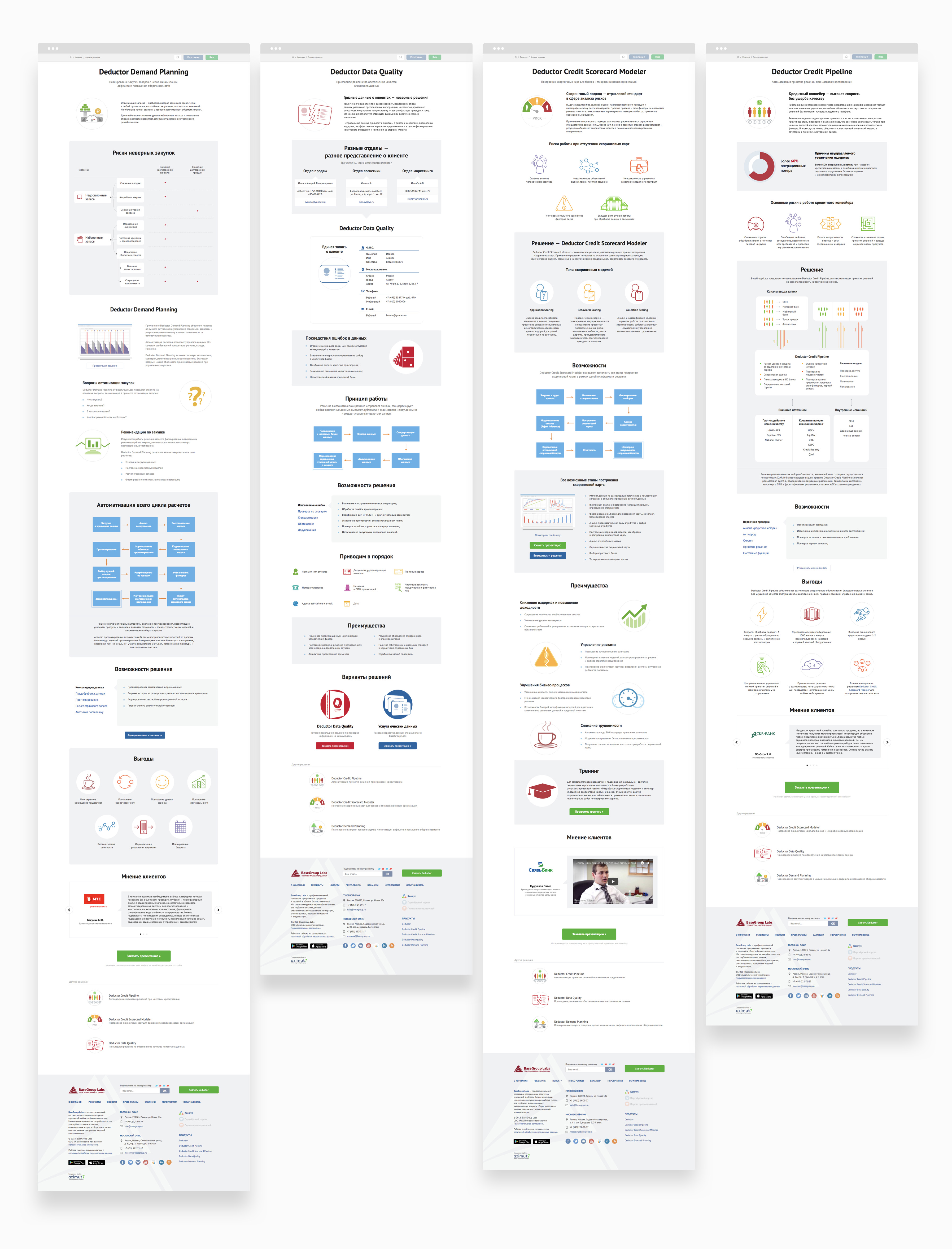
Integrations
The website is integrated with external services as well as platforms such as:
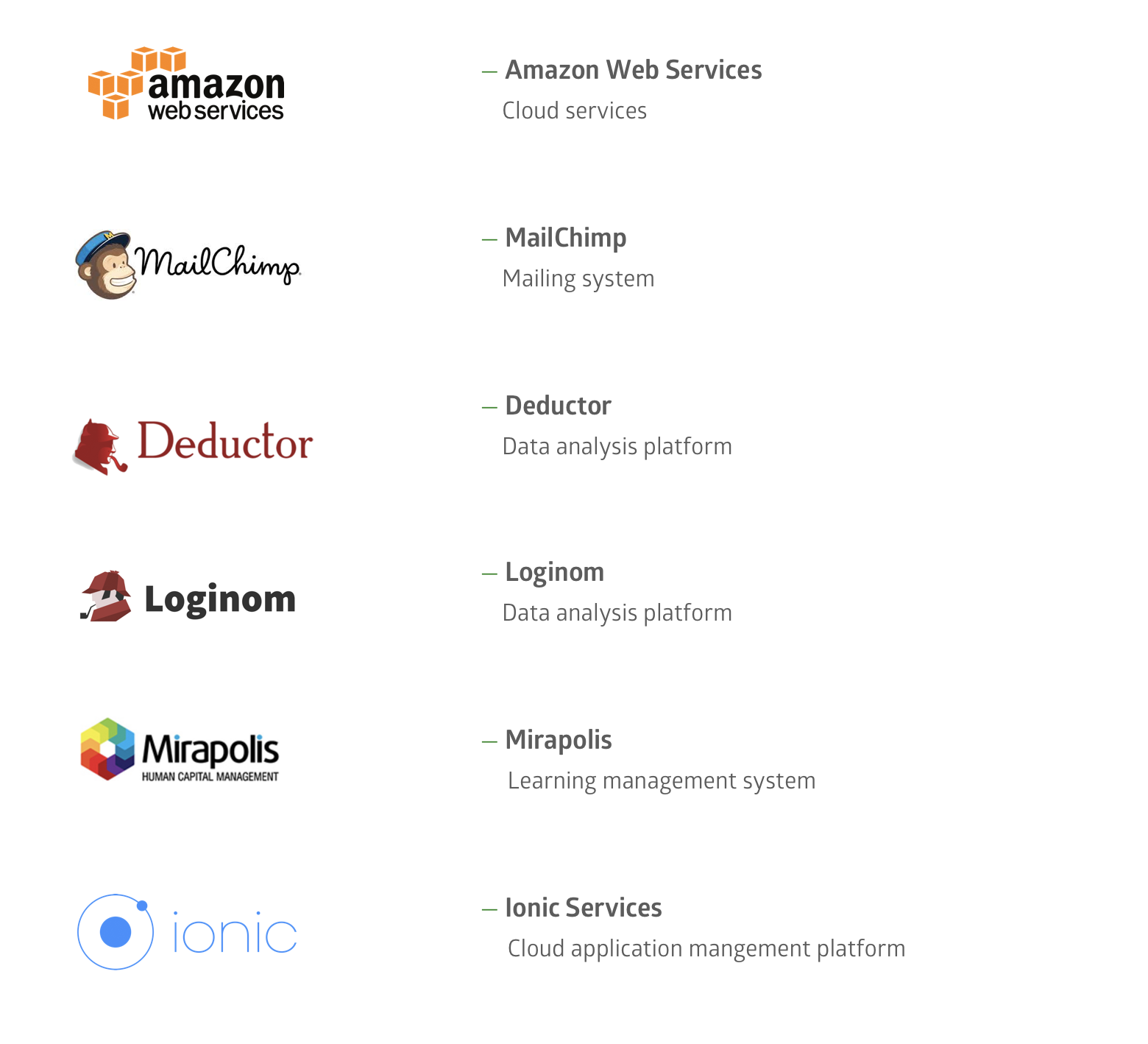
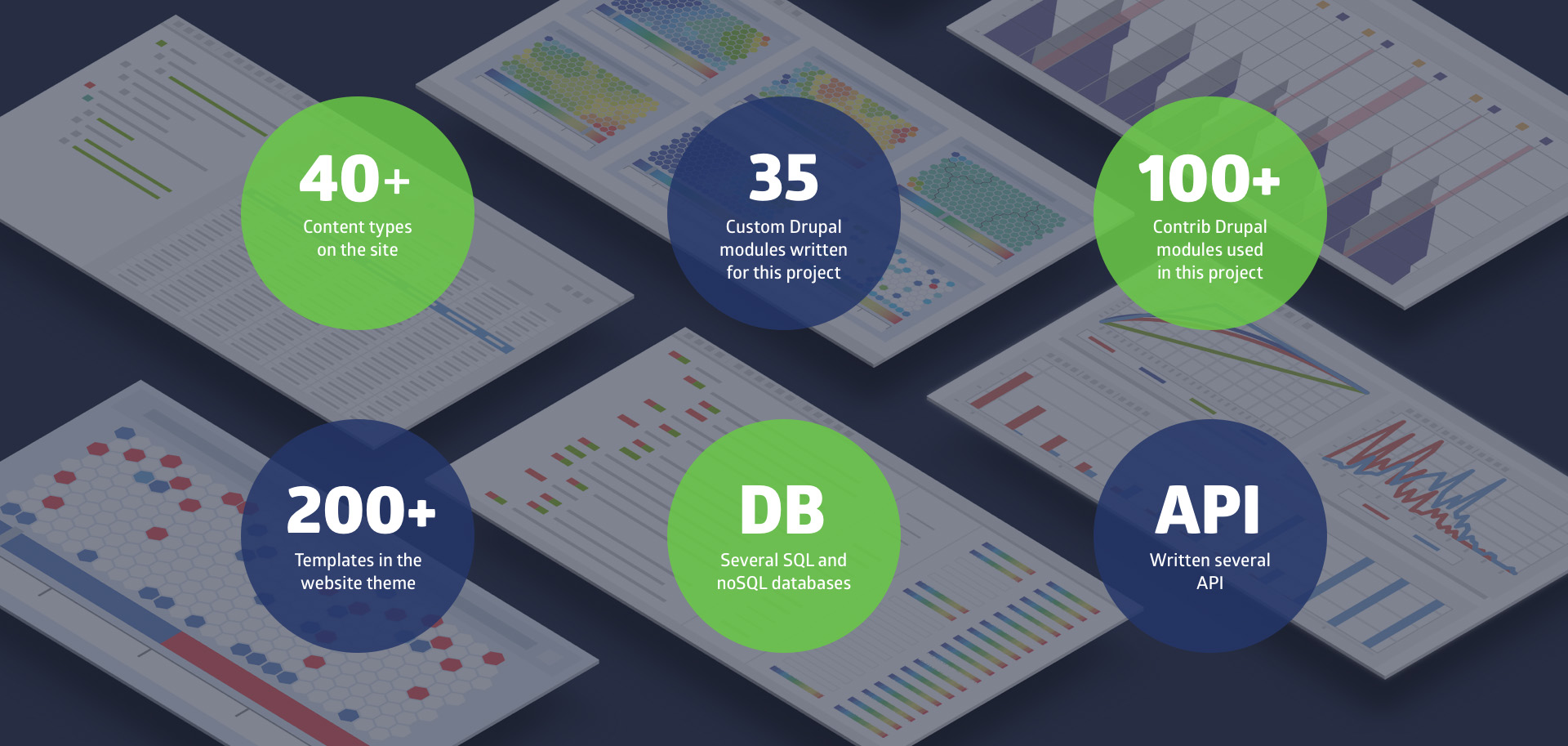
User profiles
The website has user profile functionality. Users put in their information, which is supplemented by automatically collected data, for example, certificates or activity feed.
Users can be assigned special statuses, such as teacher or analyst. We created corresponding website sections: Certified Experts and Teacher List. Using filters, visitors can find experts or colleagues in their local area.
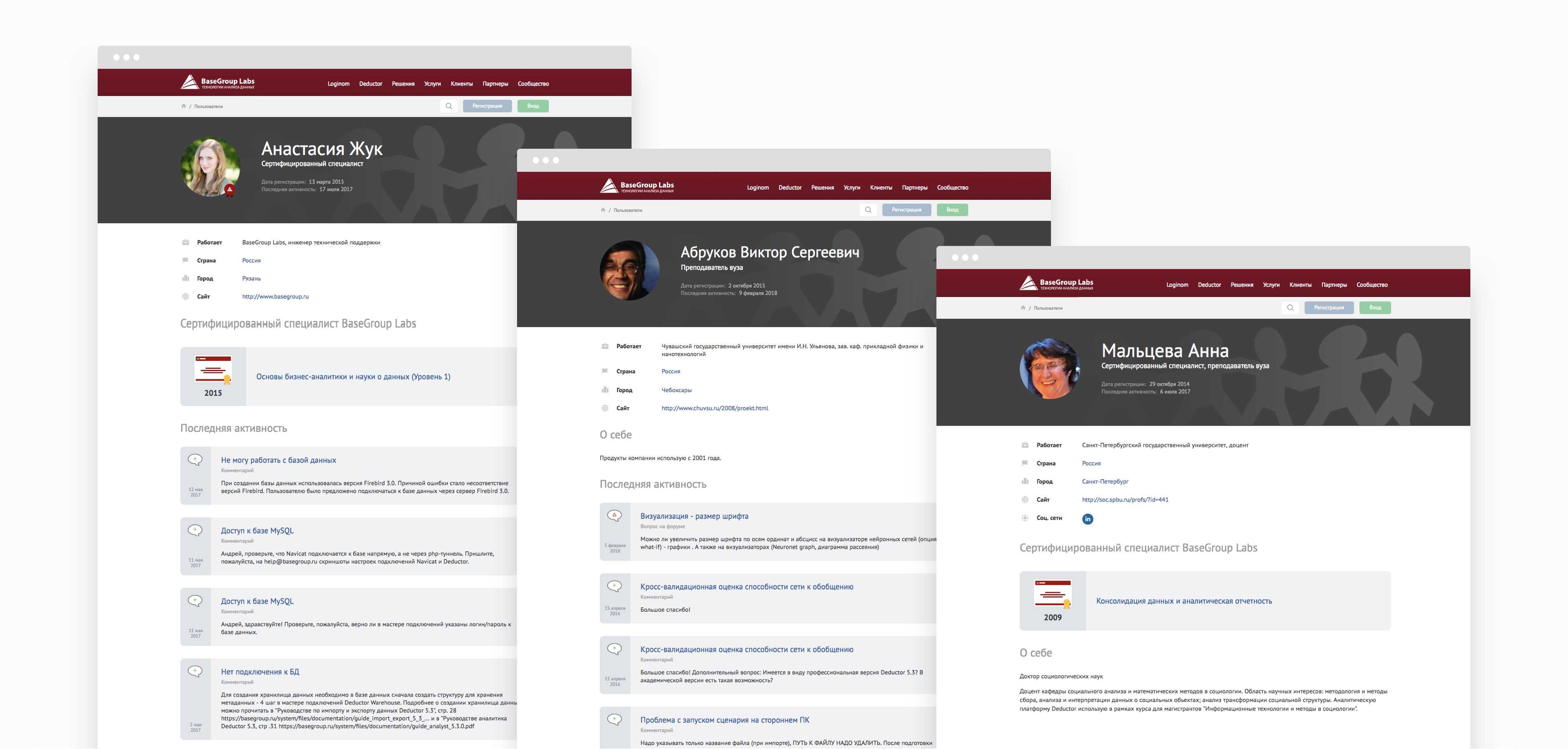
Access control
The website has a role system with different access privileges. When an editor publishes new content, they decide which roles can access it. For example, the editor can publish a blog post available for partners only.
Moreover, users have slightly different website functionality, depending on their role.
Partner portal and Teacher portal
BaseGroup Labs has two partnership programs focused primarily on businesses and higher education organizations.
The partnership program for businesses targets companies that work on analytical projects using Deductor.
The partnership program for higher education organizations provides students with free training in subjects related to data analysis systems. Since 2005, over 100 organizations have joined the program.
The website has two separate large sections for partnership program participants with all the necessary materials.
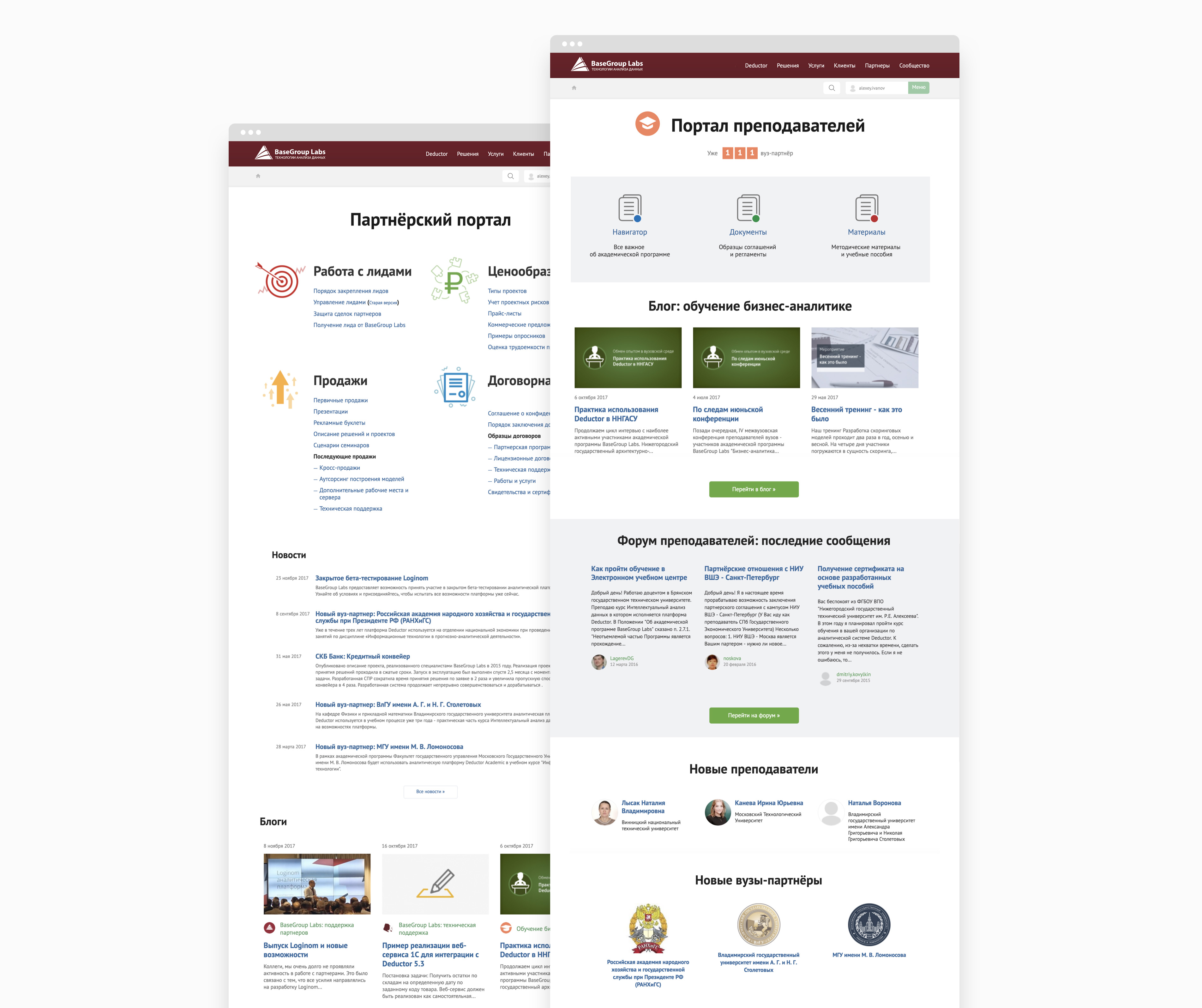
Site search
Every big website must have a powerful search engine. This is some of the search functionality on the BaseGroup Labs website:
Content and comment search
Comments on a website comprise a separate information source, different from the website content (pages, articles, blog posts, etc). That's why users should be able to search both content and comments.
Search through attached files
Web pages can have files attached to them. Indexing contents of these files is one of the main requirements for a search engine.
Search through user profiles
Using filters, users can find, for example, teachers or partners from the same city.
Search adapted to Russian and English morphology
To make search more effective, the website search engine uses stemming. It means that all search results contain the stem of a query, so that visitors can search all related word forms.
Filtered search results
Search results can be filtered by tags, locations, and content types (news, articles, projects, presentations, etc.).
Displaying search results according to access privileges
Since some website content is available only to users with corresponding access privileges, search results for a specific user are customized accordingly.
Flexible ranking settings
Administrators can manually define which content should rank higher for specific queries.
Newsletter system
Content available for different user roles should be grouped into different newsletters. When a user subscribes to a newsletter, they will receive content available to their user role. If the role changes, the user is automatically transferred to a corresponding mailing list.
File management
The website has a mechanism for working with files and directories. Admins can create directories and upload files for specific user groups or even a single user. For example, they can upload a beta version of an application and give access to partners only. Users can view all available files in their accounts.
Posting to social networks
Through the admin panel, content can be published directly to Twitter, LinkedIn, Facebook, and Vkontakte. Each post can be customized with tags, a header, a snippet, an attached image, and publishing time. All that without any third-party posting services.
Campus and Campus mobile app
The website has a special section for all informational content feeds, called BaseGroup Labs Campus. It is a platform where analysts can share their knowledge: Q&A, articles, books, knowledge base, blogs, presentation slides and records. There they can find descriptions of methodologies, algorithms, case studies, and project experience.
This section's content can also be accessed via Campus mobile app for smartphones and tablets.
Content distribution system
Website content automatically goes through different channels that deliver content to users.


